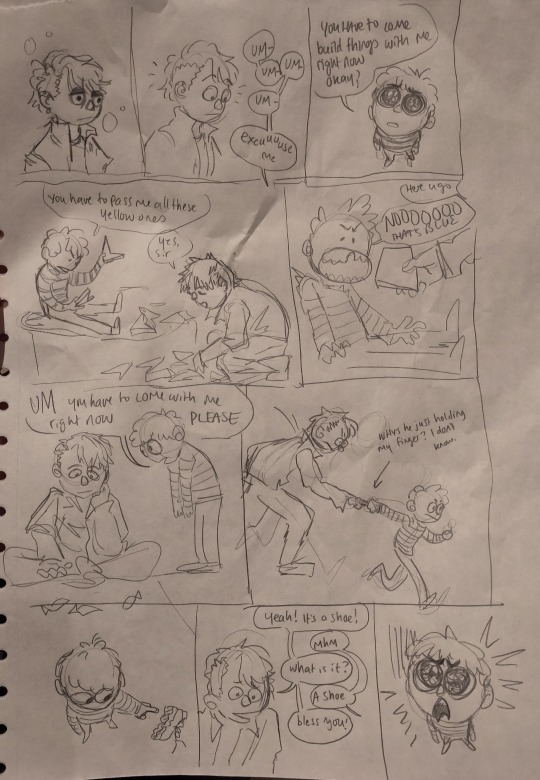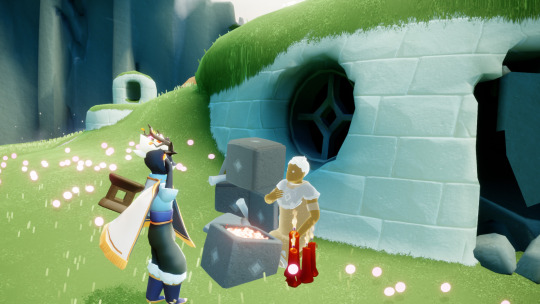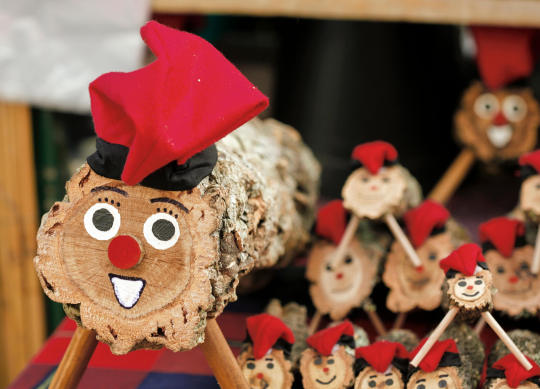#candle stick lighting
Explore tagged Tumblr posts
Text


But wait, there’s more 🐳 🦈 🌊
#tealight holder#tea light candles#hyydraworks#cute#ceramics#traditional art#pottery#handmade#whale sharks#seagull#turtle#sea turtle#trying to figure out in my brain as many animals as makes sense to stick candles in 🤣
1K notes
·
View notes
Photo

Farmhouse Powder Room - Powder Room Inspiration for a small country powder room remodel with a vessel sink, beige walls, wood countertops, furniture-like cabinets, distressed cabinets and brown countertops
#white round vessel sink#wood framed mirror#wire basket with wooden handle#earth tones#candle stick lighting#green painted cabinet#bathroom
0 notes
Text

Come on baby light my fire 🔥
#lit#mood lighting#light my fire#shine bright#light worker#light work#slow burn#burnout#fire#candles#candle stick#candle wax#wax melts#wax play#toya's tales#toyastales#toyas tales#art#summer#august#photograph#photography#art photography#black man#braids
96 notes
·
View notes
Text
thought of a word that has been eluding me for literally months today, +500xp
#the word was 'taper'#as in the long thin sticks or wax that you use to light votive candles#i literally have a wip with so many instances of [candle lighting thing] in it#and one that says [THAT GODFORSAKEN CANDLE LIGHTING WORD] lol#i did try to google it a few weeks back to no avail so#big win for the tooth brushing brain tonight lol#mer speaks
11 notes
·
View notes
Text
I'm convinced that the secret to keeping your spaces organized is to romanticize them.
Seriously, it may feel silly at first to imagine that you're in your own witchy little atelier in the woods but once you start, anything that breaks that immersion will begin to irritate you and you'll find yourself straightening up just to maintain the illusion.
So have a vibe and lean into it; turn on that 24hr lofi station and just leave it on quietly in the background.
Buy little things from thrift stores and yard sales that help you build your world and whenever you enter your space, it will feel like walking into Narnia.
#I feel very silly playing pretend with myself until I remember that there is no such thing as The Thought Police (thus far.)#Light that stick of incense or candle or w.e you got#if you can smart home your shit so the lights and everything triggers upon entry then you're really cooking with grease bb#text post#make up a guy#but you're the guy
57 notes
·
View notes
Text

made and destroyed a friendship at work today
#significant time passes between each row of panels btw. this took place over 40 minutes#his dad was getting more and more upset that he was dragging me around instead#sorry bud im his dad now#not pictured: me trying to put the shapes on my head and him truly believing i didn't understand his instructions#and so patiently explaining again that i need to *hand* them to him#''so.... not on my head? just in your hands?''#''YES'' [holds out lil baby hands]#''ohh okay i get it now'' [puts it on my head]#''NOOOOOOOOOOOOO!!!!!!!!!!!''#this was a chill afternoon activity#after all of the fire related nonsense in the morning#my candle on a stick kept going out on the way to the hydrogen so i ended up standing waaaaaaay too close#when it detonated lol#THEN when i went to light the first rocket i discover somebody bought small matches!#short matches! like an inch long i swear. teeny tiny matches#and i had already fumbled several things i didn't have time to go get other matches mid show so i was lik#''everyone think fire resistant thoughts for me real quick!!'' and just ran my hands over the gas flame bc yknow#[aragorn voice] for the bit#AND THEN MY FIRE PISTON WOULDN'T IGNITE#i was making the little kid's face from this comic at that point i swear#coworker snuck in to watch the show and watched my soul leave my body instead#blease. a smidge of energy. god knows i put enough into these damn shows lol
21 notes
·
View notes
Text

TWO OF THEM
#my bf got me dark era Dazai for our anniversary!!!#he has Atsushi and Akutagawa somewhere but we're still unpacking and have no idea where they are#also dark era Dazai apparently got his wish bc I fucking broke his neck#into 3 pieces#one of which is still lodged in the neck plate#thankfully it came with a backup and I can probably get the piece out tomorrow with the right tools#still better than Chuuya's tho which I literally had to carve from a stick using a pocketknife#bc he's a knockoff and the neck he came with didn't fit#also sorry the lighting's kinda weird. I had to use a candle#but I think them being lit up by fire is actually pretty fitting#bsd#bungou stray dogs#soukoku#bsd chuuya#bsd dazai#nendoroids#original post
22 notes
·
View notes
Text
my superstitions have gone turbo mode since i started dabbling in witch shit.
#yes i am stirring my tea clockwise w a cinnamon stick. yes i’m about to light an orange candle. it’s pumpkin spice scented.#caps lb
8 notes
·
View notes
Text

I was inflicted with a brain worm and have been staring at this man for days. Apparently I enjoy suffering because 99% of this was painted with a solid round brush.
#the original sketch went to hell so i thiught - i’ll just do lineless flats#i haven’t rendered like this since art school#astarion#bg3#idk why i even chose this specific screenshot to paint#the lighting is ass (i decided not to add the candle stick / the light source)#why did i paint him looking like a condescending muppet#nettle art
7 notes
·
View notes
Text

my kinara gets year-round use ❤️🖤💚
#hoodoo#conjure#rootwork#african traditional religions#atrs#habari gani#it’s raining#and i wanted to sit by candle light#but apparently i don’t have any candle sticks
7 notes
·
View notes
Text
Booked a tattoo for this Friday lmfao whoops
#listen#i just want a lil ghost around the time of me starting T holding a lantern or a candle#as like a. this person thought they were dead/dying/wanted to die but kept looking for the light and now theyre still alive#as like a testament to sticking around long enough to see the results#because homies it wasnt looking good for a hot minute there#but tattoo on friday t on monday
6 notes
·
View notes
Text


#personal#photography#candles#candle sticks#candle light#glow#warm aesthetic#vintage#me#lace#unedited#evening#mood lighting#messy hair
5 notes
·
View notes
Text

This post made me feel so much when I saw this guy in game today.
Hey guy. You’re really cool *tears up* thanks for being. Guy.

I have lots of feelings about this guy
They're the first spirit we've ever freed. The spirit that taught us skykids how to free other spirits and gave us our first hairstyle outside the one we were born with, without even asking for hearts in exchange. They're the first spirit any moth will know, and out of the whole rotating cast of spirits to visit aviary, they're the only one that's there every day. They're the one that greets us when we enter the village, making us feel welcome just like they did when we first started playing the game.
#sky cotl#sky children of the light#also wait is he washing dishes or making candles????#cause there’s loose candles behind him?#but also pls don’t stick your hands in wax!!!!!
1K notes
·
View notes
Text
The Neurodivergent Writer’s Guide to Fun and Productivity
(Even when life beats you down)
Look, I’m a mom, I have ADHD, I’m a spoonie. To say that I don’t have heaps of energy to spare and I struggle with consistency is an understatement. For years, I tried to write consistently, but I couldn’t manage to keep up with habits I built and deadlines I set.
So fuck neurodivergent guides on building habits, fuck “eat the frog first”, fuck “it’s all in the grind”, and fuck “you just need time management”—here is how I manage to write often and a lot.
Focus on having fun, not on the outcome
This was the groundwork I had to lay before I could even start my streak. At an online writing conference, someone said: “If you push yourself and meet your goals, and you publish your book, but you haven’t enjoyed the process… What’s the point?” and hoo boy, that question hit me like a truck.
I was so caught up in the narrative of “You’ve got to show up for what’s important” and “Push through if you really want to get it done”. For a few years, I used to read all these productivity books about grinding your way to success, and along the way I started using the same language as they did. And I notice a lot of you do so, too.
But your brain doesn’t like to grind. No-one’s brain does, and especially no neurodivergent brain. If having to write gives you stress or if you put pressure on yourself for not writing (enough), your brain’s going to say: “Huh. Writing gives us stress, we’re going to try to avoid it in the future.”
So before I could even try to write regularly, I needed to teach my brain once again that writing is fun. I switched from countable goals like words or time to non-countable goals like “fun” and “flow”.
Rewire my brain: writing is fun and I’m good at it
I used everything I knew about neuroscience, psychology, and social sciences. These are some of the things I did before and during a writing session. Usually not all at once, and after a while I didn’t need these strategies anymore, although I sometimes go back to them when necessary.
I journalled all the negative thoughts I had around writing and try to reason them away, using arguments I knew in my heart were true. (The last part is the crux.) Imagine being supportive to a writer friend with crippling insecurities, only the friend is you.
Not setting any goals didn’t work for me—I still nurtured unwanted expectations. So I did set goals, but made them non-countable, like “have fun”, “get in the flow”, or “write”. Did I write? Yes. Success! Your brain doesn’t actually care about how high the goal is, it cares about meeting whatever goal you set.
I didn’t even track how many words I wrote. Not relevant.
I set an alarm for a short time (like 10 minutes) and forbade myself to exceed that time. The idea was that if I write until I run out of mojo, my brain learns that writing drains the mojo. If I write for 10 minutes and have fun, my brain learns that writing is fun and wants to do it again.
Reinforce the fact that writing makes you happy by rewarding your brain immediately afterwards. You know what works best for you: a walk, a golden sticker, chocolate, cuddle your dog, whatever makes you happy.
I conditioned myself to associate writing with specific stimuli: that album, that smell, that tea, that place. Any stimulus can work, so pick one you like. I consciously chose several stimuli so I could switch them up, and the conditioning stays active as long as I don’t muddle it with other associations.
Use a ritual to signal to your brain that Writing Time is about to begin to get into the zone easier and faster. I guess this is a kind of conditioning as well? Meditation, music, lighting a candle… Pick your stimulus and stick with it.
Specifically for rewiring my brain, I started a new WIP that had no emotional connotations attached to it, nor any pressure to get finished or, heaven forbid, meet quality norms. I don’t think these techniques above would have worked as well if I had applied them on writing my novel.
It wasn’t until I could confidently say I enjoyed writing again, that I could start building up a consistent habit. No more pushing myself.
I lowered my definition for success
When I say that nowadays I write every day, that’s literally it. I don’t set out to write 1,000 or 500 or 10 words every day (tried it, failed to keep up with it every time)—the only marker for success when it comes to my streak is to write at least one word, even on the days when my brain goes “naaahhh”. On those days, it suffices to send myself a text with a few keywords or a snippet. It’s not “success on a technicality (derogatory)”, because most of those snippets and ideas get used in actual stories later. And if they don’t, they don’t. It’s still writing. No writing is ever wasted.
A side note on high expectations, imposter syndrome, and perfectionism
Obviously, “Setting a ridiculously low goal” isn’t something I invented. I actually got it from those productivity books, only I never got it to work. I used to tell myself: “It’s okay if I don’t write for an hour, because my goal is to write for 20 minutes and if I happen to keep going for, say, an hour, that’s a bonus.” Right? So I set the goal for 20 minutes, wrote for 35 minutes, and instead of feeling like I exceeded my goal, I felt disappointed because apparently I was still hoping for the bonus scenario to happen. I didn’t know how to set a goal so low and believe it.
I think the trick to making it work this time lies more in the groundwork of training my brain to enjoy writing again than in the fact that my daily goal is ridiculously low. I believe I’m a writer, because I prove it to myself every day. Every success I hit reinforces the idea that I’m a writer. It’s an extra ward against imposter syndrome.
Knowing that I can still come up with a few lines of dialogue on the Really Bad Days—days when I struggle to brush my teeth, the day when I had a panic attack in the supermarket, or the day my kid got hit by a car—teaches me that I can write on the mere Bad-ish Days.
The more I do it, the more I do it
The irony is that setting a ridiculously low goal almost immediately led to writing more and more often. The most difficult step is to start a new habit. After just a few weeks, I noticed that I needed less time and energy to get into the zone. I no longer needed all the strategies I listed above.
Another perk I noticed, was an increased writing speed. After just a few months of writing every day, my average speed went from 600 words per hour to 1,500 wph, regularly exceeding 2,000 wph without any loss of quality.
Talking about quality: I could see myself becoming a better writer with every passing month. Writing better dialogue, interiority, chemistry, humour, descriptions, whatever: they all improved noticeably, and I wasn’t a bad writer to begin with.
The increased speed means I get more done with the same amount of energy spent. I used to write around 2,000-5,000 words per month, some months none at all. Nowadays I effortlessly write 30,000 words per month. I didn’t set out to write more, it’s just a nice perk.
Look, I’m not saying you should write every day if it doesn’t work for you. My point is: the more often you write, the easier it will be.
No pressure
Yes, I’m still working on my novel, but I’m not racing through it. I produce two or three chapters per month, and the rest of my time goes to short stories my brain keeps projecting on the inside of my eyelids when I’m trying to sleep. I might as well write them down, right?
These short stories started out as self-indulgence, and even now that I take them more seriously, they are still just for me. I don’t intend to ever publish them, no-one will ever read them, they can suck if they suck. The unintended consequence was that my short stories are some of my best writing, because there’s no pressure, it’s pure fun.
Does it make sense to spend, say, 90% of my output on stories no-one else will ever read? Wouldn’t it be better to spend all that creative energy and time on my novel? Well, yes. If you find the magic trick, let me know, because I haven’t found it yet. The short stories don’t cannibalize on the novel, because they require different mindsets. If I stopped writing the short stories, I wouldn’t produce more chapters. (I tried. Maybe in the future? Fingers crossed.)
Don’t wait for inspiration to hit
There’s a quote by Picasso: “Inspiration hits, but it has to find you working.” I strongly agree. Writing is not some mystical, muse-y gift, it’s a skill and inspiration does exist, but usually it’s brought on by doing the work. So just get started and inspiration will come to you.
Accountability and community
Having social factors in your toolbox is invaluable. I have an offline writing friend I take long walks with, I host a monthly writing club on Discord, and I have another group on Discord that holds me accountable every day. They all motivate me in different ways and it’s such a nice thing to share my successes with people who truly understand how hard it can be.
The productivity books taught me that if you want to make a big change in your life or attitude, surrounding yourself with people who already embody your ideal or your goal huuuugely helps. The fact that I have these productive people around me who also prioritize writing, makes it easier for me to stick to my own priorities.
Your toolbox
The idea is to have several techniques at your disposal to help you stay consistent. Don’t put all your eggs in one basket by focussing on just one technique. Keep all of them close, and if one stops working or doesn’t inspire you today, pivot and pick another one.
After a while, most “tools” run in the background once they are established. Things like surrounding myself with my writing friends, keeping up with my daily streak, and listening to the album I conditioned myself with don’t require any energy, and they still remain hugely beneficial.
Do you have any other techniques? I’d love to hear about them!
I hope this was useful. Happy writing!
#writing advice#writing#novel writing#creative writing#spoonie#spoonie writing#neurodivergent#adhd#how to tell me a story#sanne
6K notes
·
View notes
Text
Right now we have what I'll always remember from my childhood was called "witching weather", though I'm not sure why. I always feel best on these days. I completed a cleaning ritual this morning and lit some candles for meditation. It's thundering outside and the sky has been steadily growing darker. The winds move with purpose today. I can feel it in my bones - rain is coming.
#this is your reminder to clean your room#dust everything#change all your bedding#rearrange a piece of furniture#and spray a perfume#or light a candle or incense stick#I feel cosier and more comfortable in my room than I have in a while#just needed something new#also I am usually a hoarder of candles#but there's satisfaction in letting them go to use and burn instead of just preserving them
1 note
·
View note
Text
Something very strange happened, and I think we need to have a talk about the way some people who don't know about Catalan culture misrepresent the Tió (our pre-Christian Christmas present-bringer, a log who poops presents 🪵🎁).

I have a relative who is a teacher in an adult school, she teaches Catalan language (mostly to immigrants). Some days ago, they were doing an activity about Catalan holidays, and two of her students said that Tió should be banned and that it's the worst thing they have ever heard. My relative was very shocked and asked why they could say such a thing (imagine, it's like saying Santa Claus should be banned in the USA). Their reasoning was that they completely misunderstood everything about it. These people are native Spanish speakers and assumed that the Catalan word "tió" (meaning "log" 🪵) means the same as the Spanish word "tío" (meaning "uncle"), even though both words are pronounced differently. They believed that the Tió represents a man and that we tell children to beat people up, so much until they poop themselves, threatening them to give us things. They said it promotes violence to children and that it's disgusting. Nothing further from the truth.
This is not an isolated incident because a few days ago I saw a post on Tumblr repeating this same mistake. I texted the person who posted it saying that it's not called "Poop Uncle" but "Christmas Log" and they said that this was what they were taught by their teacher (this person is from a different continent), and haven't taken down the post. I have also seen comments on Instagram repeating the same and making fun of how gross and violent it is.
The real meaning of Tió
The Log is a way of symbolically passing down our relation with nature. This is how the tradition works:
In early December, we get a log and bring him home. We take care of him: we keep him in a warm place, with a blanket over him, and we feed him things like orange/clementine peels and walnut shells. On Christmas day, all the family comes together. Children get wooden sticks and go get ready in another room, meanwhile adults place presents under the Log's blanket. Children come back and hit the Log while singing a song. There are many local variants of the song but they all come down to asking the Log to poop us good food. When they have finished singing the song, the children remove the blanket and discover the presents that the Log has pooped. Years ago (now this is only done by some farmer families in rural areas, but back in the day this was generalized), the Log was burned in the house's fireplace and its ashes were spread on the fields, believed to act as a magical fertilizer.
Notice what this whole "ritual" has been about: we take care of nature, nature takes care of us, we are part of a whole and there's no real difference between "nature" and "us" because we all give life to each other. After the winter rest, we wake up nature (the Tió) so it will bring fruits and light again.
We take a log from the forest and bring it home. We do this for the Winter Solstice because it's the time of the return of light and the rebirth of nature after the winter sleep, and wood symbolizes the most important things for human life: food, warmth and light. It's difficult for us to imagine nowadays because we are used to electricity, but for our ancestors who only had oil lamps, fire and candles, darkness was almost absolute for many hours in winter, and that's why the Winter Solstice was very important because it meant that light is coming back. We want something from the Log, his fire will allow us to cook, it will give us light, and keep us warm. So we offer him the same: we feed him (notice what we feed it, too: a kind of compost, which is complimentary to human food), we keep him warm, and we love him. Then, we hit him with sticks (mimicking the motion of cutting down a tree) and ask him to give us food, and he does. Then, our ancestors used to burn him for warmth and light, and then take him back to plants spreading his ashes so it will give life to the fields. Which in turn will give us food again, which we will poop and it will fertilize plants again. And it's a cycle that never ends, we're all part of a whole.
We give to the forests, the forests can grow with the remains that all living creatures leave on its ground: leafs, excrements, the remains of parts of our food like nuts and fruit peels. These things give life to the forest. And the forest gives life to us: gives us fruits and wood (=light and warmth). We take these things, and in return we give to forests once again.

Nowadays, the part about warmth and light is often lost to kids, but the part about food is still obvious, even if subconsciously. This is why the Log is not the horrible barbaric tradition that the "haha poop and violence" crowd would make you believe.
And don't get me wrong, it can still be funny! We're the first ones to make jokes about it. And you can, too! But don't spread false ideas: the Spanish word "uncle" appears nowhere near this tradition because it doesn't have anything to do with uncles nor with Spanish-speaking cultures. It's called the Christmas Log (Tió de Nadal, Soca de Nadal, Tronca de Nadal, Tizón de Nadal, etc depending on the area, all meaning "Christmas Log") and it's celebrated by the Catalan people and a part of the Occitan and Pyrenean Aragonese people. The word "poop" (as an imperative verb, as in "please poop for us") appears in the song, but not in the name.
I know that, now that misinformation has gone viral, a post won't stop it. But I hope at least people with a genuine interest can learn some more. By all means, keep laughing! Make all the memes you want! But knowing the whole story will give you understanding. And, please, don't argue in favour of banning our cultural practises, we've had enough of that for centuries.
#tió de nadal#nadal#tradicions#catalunya#catalan culture#catalan#catalonia#coses de la terra#cultures#culture#anthropology#christmas traditions#christmas#folklore#folk culture
1K notes
·
View notes